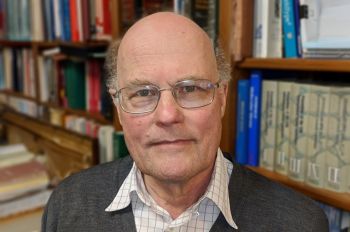IIT Student Programming Team Advances to ACM-ICPC World Finals
A team of three IIT students placed third overall in the 2011 Mid-Central Regional ACM International Collegiate Programming Contest (ACM-ICPC) held on Saturday, November 5, qualifying them to compete in the world finals in Warsaw, Poland, in May 2012. The "IIT-A" team, composed of computer science doctoral candidate Kan Qiao, graduate student Ke Wang, and CAEE undergraduate Timothy Smith and coached by CS Associate Professor Gruia Calinescu, is one of just 18 teams from the United States to qualify. The teams victory marks the first time an IIT team has advanced to the finals since 2005.
The ACM-ICPC pits teams of three university students against eight or more complex, real-world problems, with a grueling five-hour deadline. Huddled around a single computer, competitors race against the clock in a battle of logic, strategy, and mental endurance.
Teammates collaborate to rank the difficulty of the problems, deduce the requirements, design test beds, and build software systems that solve the problems under the intense scrutiny of expert judges. For a well-versed computer science student, some of the problems require precision only. Others require a knowledge and understanding of advanced algorithms. Still others are simply too hard to solve — except, of course, for the world's brightest problem-solvers.
Judging is relentlessly strict. The students are given a problem statement — not a requirements document. They are given an example of test data, but they do not have access to the judges' test data and acceptance criteria. Each incorrect solution submitted is assessed a time penalty. You don't want to waste your customer's time when you are dealing with the supreme court of computing. The team that solves the most problems in the fewest attempts in the least cumulative time is declared the winner.
The Association for Computing Machinery, with more than 100,000 members, is the world's largest educational and scientific computing society, uniting computing educators, researchers, professionals, and students to inspire dialogue, share resources, and address the field's challenges.
Pictured (left to right): Ke Yang, Kan Qiao, and Timothy Smith
From IIT Today December 12, 2011




